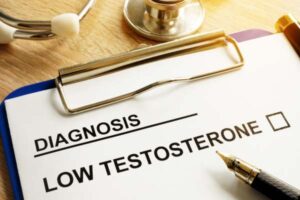
TRT with HCG: Benefits and Risks Explained
Understanding TRT with HCG Sweden and Its Impact on Men’s Health Testosterone Replacement Therapy (TRT) is a widely known medical intervention aimed at addressing low

Menopause is a natural phase in every woman’s life, marked by the end of menstrual cycles. However, as every woman experiences menopause differently, its symptoms and effects vary greatly. Amidst the scientific exploration surrounding menopause, Human Chorionic Gonadotropin (HCG) has risen as an interesting point of discussion. How does it relate to this life stage, and could it hold potential benefits during this transition?
This blog explores the connection between HCG and menopause Sweden, offering an accessible guide to help researchers, post-menopausal women, and those approaching menopause understand its implications and applications.
Before connecting the dots, it’s crucial to understand what HCG and menopause are in the context of the female body.
HCG (Human Chorionic Gonadotropin) is a hormone most commonly associated with pregnancy. It is produced during pregnancy to support the development of the fertilised egg and the placenta. Beyond pregnancy, HCG has other medical implications, such as usage in fertility treatments, assisting in ovulation, and even bodybuilding or weight loss, though its latter uses are controversial.
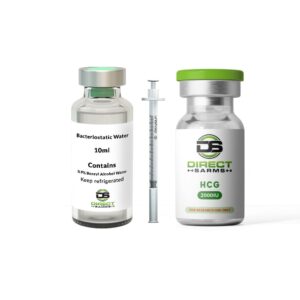
Discover more about HCG here from Direct Sarms, a trusted global supplier of premium research peptides.
Menopause signifies the permanent end of menstruation and fertility. It is diagnosed after 12 consecutive months without a menstrual period and typically occurs between the ages of 45 and 55. This phase is accompanied by a decrease in hormone production, primarily oestrogen and progesterone, leading to various symptoms such as hot flushes, mood swings, and sleep disturbances.
Understanding how the reduction of reproductive hormones like oestrogen interacts with HCG is central to exploring the role between HCG and menopause.
Interestingly, studies have shown that HCG levels may not completely disappear after pregnancy. Low levels of HCG have been detected in non-pregnant individuals, including menopausal women. Emerging research suggests that even these minute levels may have a role to play in the regulatory mechanisms of the body, potentially influencing hormonal balance during menopause.
For instance, HCG has been observed to stimulate activity in the ovaries even in postmenopausal states. While not fully understood, this hormonal interaction opens avenues for further exploration, particularly whether HCG possesses any benefits or therapeutic properties for women experiencing menopausal symptoms.
The question remains — can HCG actually help with menopausal symptoms? Sweden Scientists and healthcare professionals are exploring the possibility that HCG could act as a regulatory hormone.
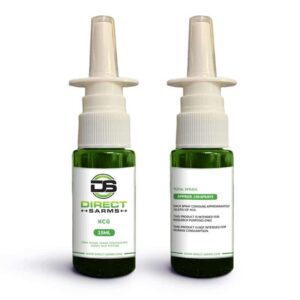 Here’s what initial Sweden research indicates about its applications:
Here’s what initial Sweden research indicates about its applications:
HCG mimics luteinising hormone (LH) in the body and could assist with regulating hormone levels during menopause. By stimulating the ovaries, HCG may indirectly help maintain a certain level of oestrogen production, which can ease common menopausal symptoms such as mood swings or hot flushes.
Studies have hypothesised that HCG’s potential to regulate hormone levels could play a role in preserving bone density, a major concern for postmenopausal women at risk for osteoporosis.
Declining ovarian hormones can cause emotional fluctuations and depressive symptoms. Some researchers propose that HCG might have a role in improving mood stability due to its systemic influence on hormonal networks, though this requires further investigation.
Note that while these possibilities are promising, the Sweden medical community is far from reaching a consensus about HCG’s direct effectiveness for menopause.
HCG as a treatment option has sparked intense debate. Some proponents claim it provides hormonal balance and treats weight gain or fatigue associated with menopause. However, these claims are not universally backed by robust clinical trials.
It’s important to weigh the ongoing research with caution and consult healthcare professionals before considering HCG treatments for managing menopause.
Whether considering HCG as part of your research or wanting to explore other options, women over 40 can benefit from these tips during the menopausal transition:
Given the evolving landscape around HCG and menopause, seeking professional guidance ensures any approach aligns with your unique research needs. Physicians and endocrinologists offer tailored advice and test hormone levels to ensure treatments create balance instead of additional complications.
Evidence-based medicine should always underpin decisions on new therapies like HCG. Reliable consultation and targeted strategies significantly enhance one’s quality of life during menopause.
[1] Mary Margaret Basham and Teresa Bryan (2017) Postmenopausal pregnancy? Evaluation of elevated hCG in a 59-year-old woman – BMJ Case Reports, 2017 Jun 5, 2017: bcr2016218807.
[2] Lea El Hage and Betul Hatipoglu (2021) Elevated hCG can be a benign finding in perimenopausal and postmenopausal women – Cleveland Clinic Journal of Medicine, 2021 Nov 2, Volume 88 (Issue 11), Pages 635-639.
Direct SARMs offers a wide variety of high-quality peptides to suit different needs and preferences. You can choose from several formats, such as vials for injections, non-invasive nasal sprays, and pre-mixed pens for convenient and accurate dosing. They also offer specialized blends for specific goals and combination stacks.
ALL CONTENT AND PRODUCT INFORMATION AVAILABLE ON THIS WEBSITE IS FOR EDUCATIONAL PURPOSES ONLY.
DISCLAIMER: These products are intended solely as a research chemical only. This classification allows for their use only for research development and laboratory studies. The information available on our Direct Sarms website is provided for educational purposes only. These products are not for human or animal use or consumption in any manner. Handling of these products should be limited to suitably qualified professionals. They are not to be classified as a drug, food, cosmetic, or medicinal product and must not be mislabelled or used as such.
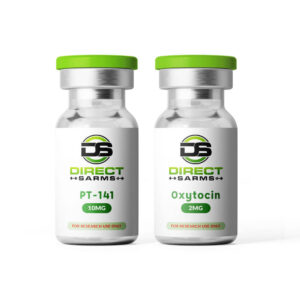
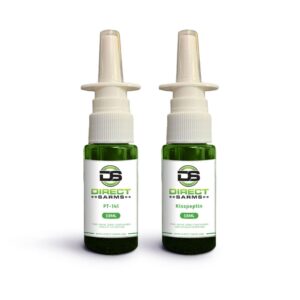
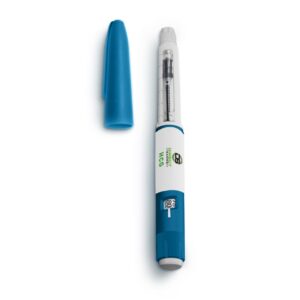
Save 10%
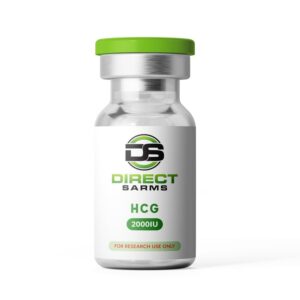

Understanding TRT with HCG Sweden and Its Impact on Men’s Health Testosterone Replacement Therapy (TRT) is a widely known medical intervention aimed at addressing low
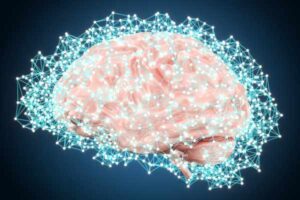
Cognitive Benefits of NAD+ Sweden: Insights into Brain Health Introduction to NAD Plus and Its Role in Brain Health NAD+ (Nicotinamide Adenine Dinucleotide) is an

Worldwide
shipping

Visa/Mastercard/Zelle
Cryptocurrency /Transfers

Safe and Secure Shopping

We Distribute
From

YOU MUST BE OVER 21 YEARS IN ORDER TO USE THIS WEBSITE. All of the products are to be handled only by properly trained and qualified LABORATORY or RESEARCH professionals.